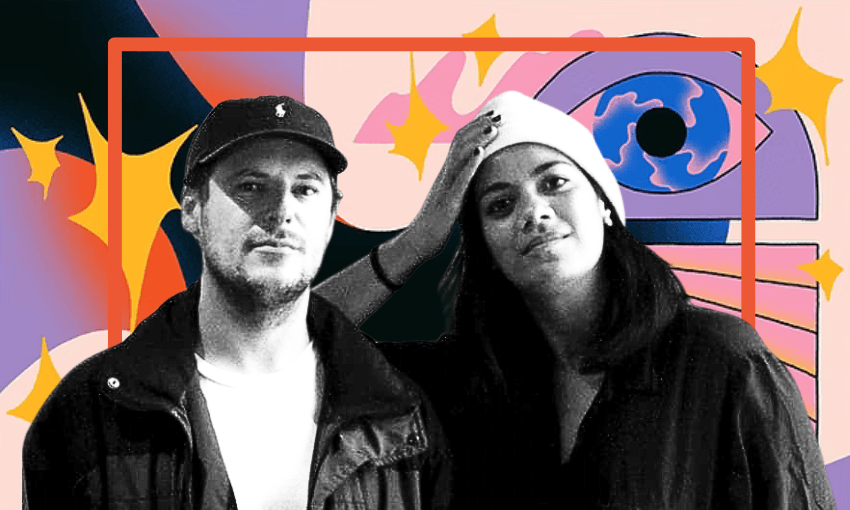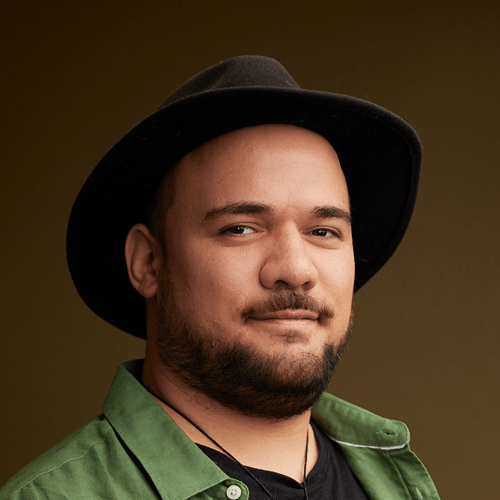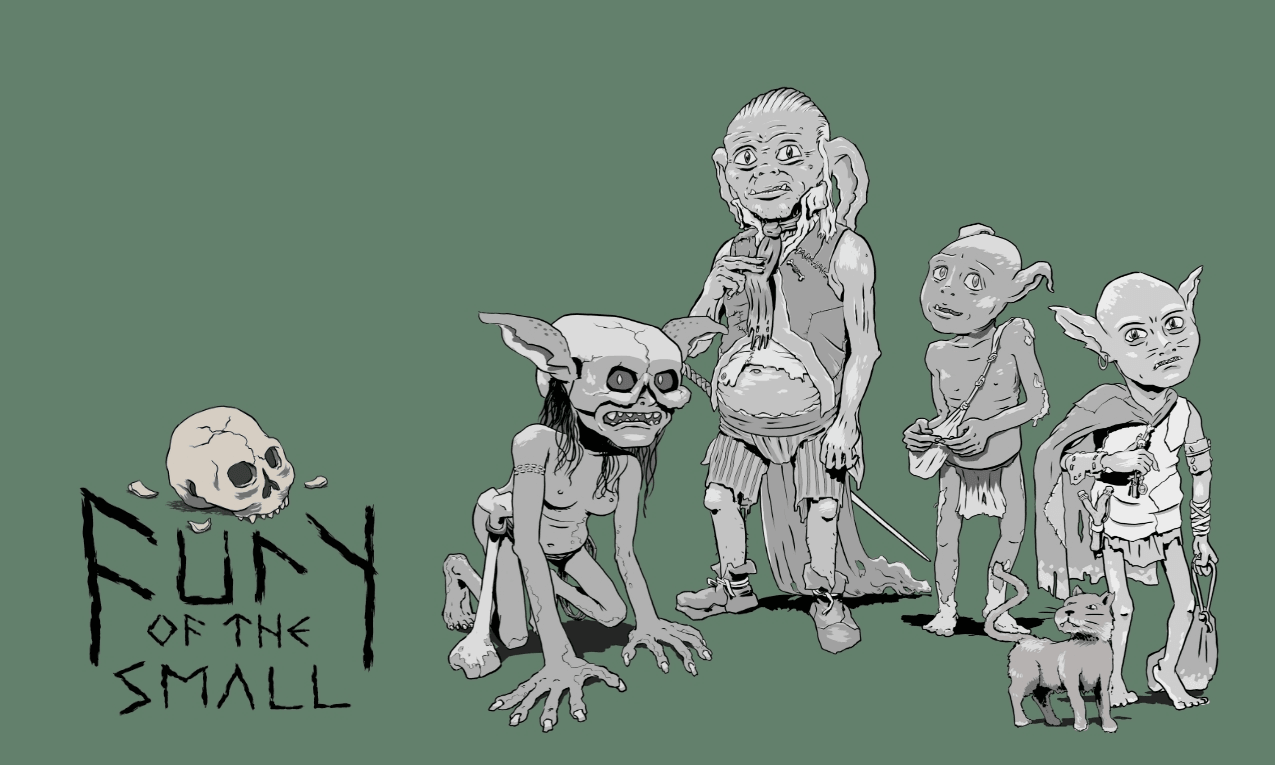Seven years in the making, Ladi6’s new album Le Vā is a deeply personal exploration of loss, healing and reinvention. Ahead of its release, she sits down with The Spinoff to talk about finding her voice again – musically and literally.
When Caroline Park-Tamati walks into the room, she’s every bit the icon her reputation promises: poised, magnetic, effortlessly cool. Better known as Ladi6, the pioneering voice of Aotearoa neo-soul is wearing a black tee stamped with one word: “Angitū”. It’s a nod to one of the country’s most radical kapa haka collectives, and a fitting parallel for an artist whose career has consistently blurred genre lines and redefined what success looks like, on her own terms.
Now 44, Park-Tamati has been making music since she was a teenager. Her roots are planted firmly in both Ōtautahi and Samoa, though she jokes her Ancestry.com results added an unexpected 4% Māori to the mix. Her whakapapa in music is equally deep: cousin to Scribe and Tyra Hammond, and the founder of Sheelahroc – Aotearoa’s first all-women hip-hop crew. But even with the legacy behind her, Le Vā marks new terrain.
That liberation – creatively and emotionally – is the pulse of Le Vā, her first full-length release since 2017 EP Royal Blue 3000. The new record is a tribute to her late mother Fuarosa, a deep dive into the sacred space between life and death, and an unapologetic snapshot of where she’s at as an artist and a woman.
The journey hasn’t been smooth. Following the release of Royal Blue 3000, Park-Tamati underwent multiple vocal surgeries for polyps that nearly ended her singing career. She describes the experience as a wake-up call: “It was like, what are you actually good at if you can’t sing? What else can you do?”
The answer came, in part, through study. In the wake of her mother’s death in 2020 – right at the start of New Zealand’s first Covid lockdown – Park-Tamati enrolled in a psychology degree at AUT University. She now plans to continue postgraduate study in counselling at the University of Auckland, with the aim of walking alongside others through their own pain.
“It’s almost like a political statement for me. I believe people need people to get through their shit,” she says. “Music can do that too, but counselling is tangible. You’re in the room. You’re doing the mahi with them.”
Helping others, she notes, is in her bloodline. Her father, Vic Tamati, founded the anti-violence trust Safe Man Safe Family. Her mother created community theatre and arts programmes for Pacific and Māori rangatahi. And Park-Tamati’s music has long reflected a commitment to wairua, honesty and political resistance.
While Royal Blue 3000 was dedicated to her late cousin Lils3000, and her debut album The Liberation Of…… carried tributes to other lost whānau, Le Vā is an excavation of grief on a different scale. The rupture caused by her mother’s passing – and the family fallout that followed – became the album’s emotional bedrock.
“We were a tight family, but losing Mum created a massive crack. We were navigating death during Covid, with a Zoom funeral and no clear protocol. It was raw, confusing, and heartbreaking.”
Rather than shy away, Park-Tamati poured that emotion into the music. But she did so with subtlety and intention, cloaking the personal in metaphor. “I don’t want to put all my trash out there,” she says. “But I can’t write in any other way than from my whole heart. That’s just who I am.”
Musically, Le Vā is another leap forward for the Ladi6 sonic universe. While her early work blended soulful hip-hop and jazzy flow, the new album – produced by her partner Brent “Parks” Park-Tamati with long-time collaborators Julien Dyne and Brandon Haru – embraces modular synthesis, layered textures, and beat-forward experimentation.
Park-Tamati is quick to credit Parks with building the soundscape: “I don’t touch the production. I just say, ‘I like that one.’ But we trust each other completely. We throw ideas over the fence and build something together.”
With Le Vā, the pair have crafted a record that is both futuristic and deeply rooted, intimate yet expansive. The name itself refers to the sacred space between people – a Samoan concept that also captures the essence of the album: the invisible threads of connection, loss and love.
Looking ahead, Park-Tamati feels excited about what comes next. She and Parks are already sketching ideas for new music. And for the first time in decades, financial stability through counselling work means she can approach her art on her own terms.
“I used to stress about rent, about whether the music would pay. Now I feel like I can say no to things that don’t align. That’s empowering.” Most importantly, she says, Le Vā has allowed her to lay something to rest. “I think of albums like journals. Once I’ve written it all down, I can let go. I can move forward.”
As for how it will be received?
“No nerves. I listen to it front to back and I’m like, yep – that’s us. That’s the sound. That’s the story. It’s solid.
“Honestly, at my age, who gives a shit?” she laughs. “If people don’t like it, that’s alright. I don’t mind.”
Le Vā is not just a tribute to a mother lost, or a career reborn. It’s a document of survival, a declaration of purpose, and a reminder of what can bloom when you give yourself space to heal.
Le Vā is out Sunday, June 1, with a nationwide release tour kicking off in Ōtepoti on June 19. Tickets and vinyl available here.
This is Public Interest Journalism funded by NZ On Air.




